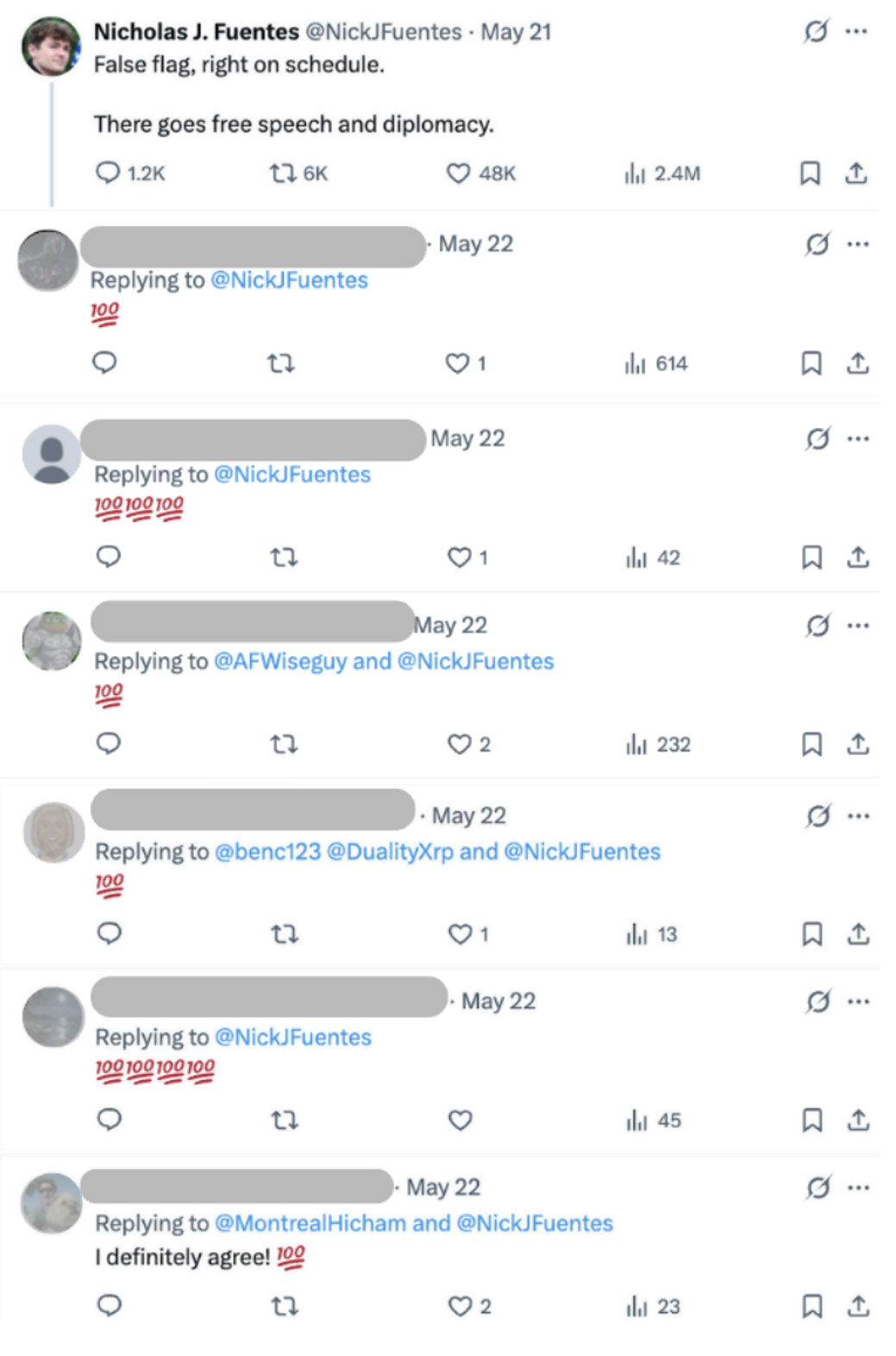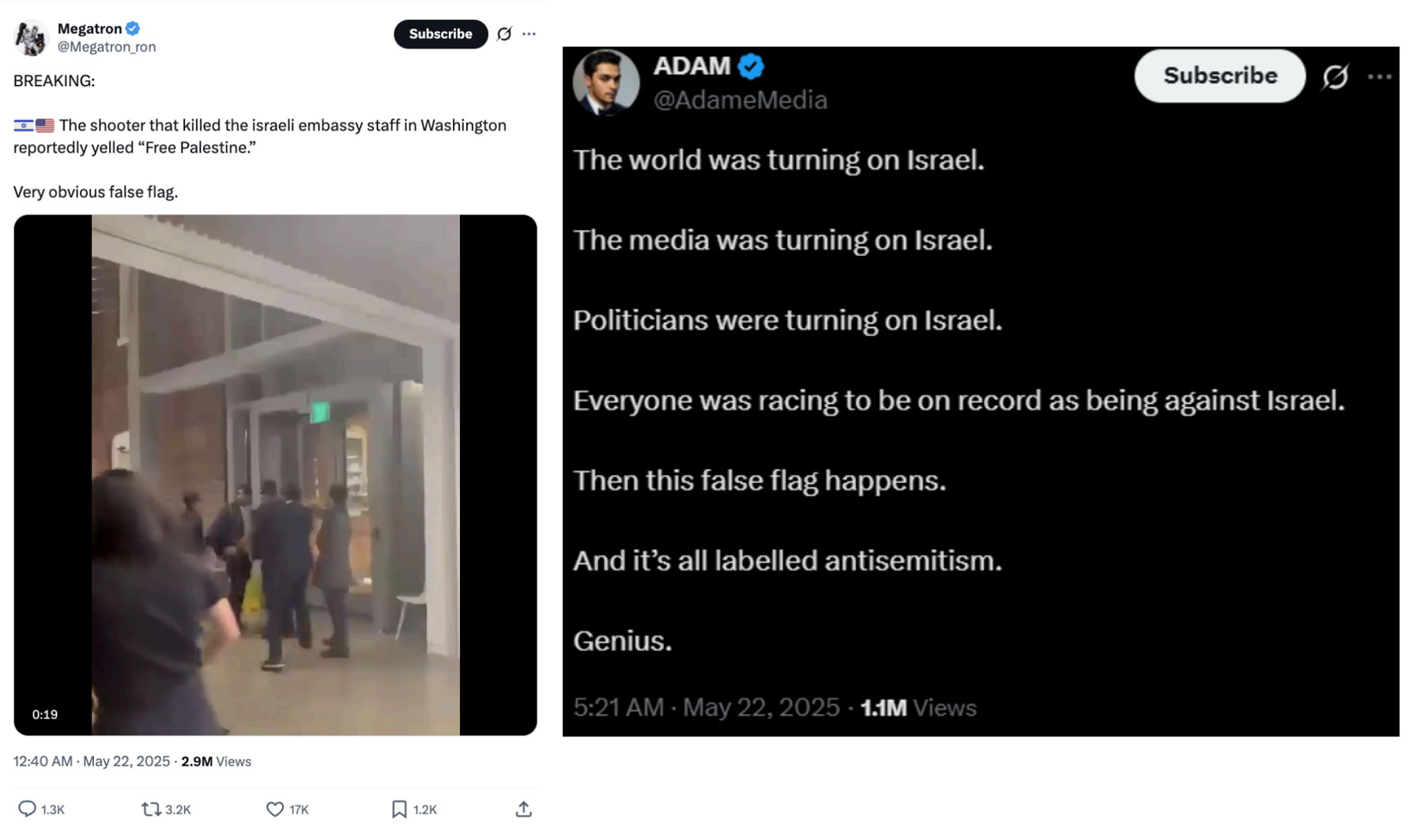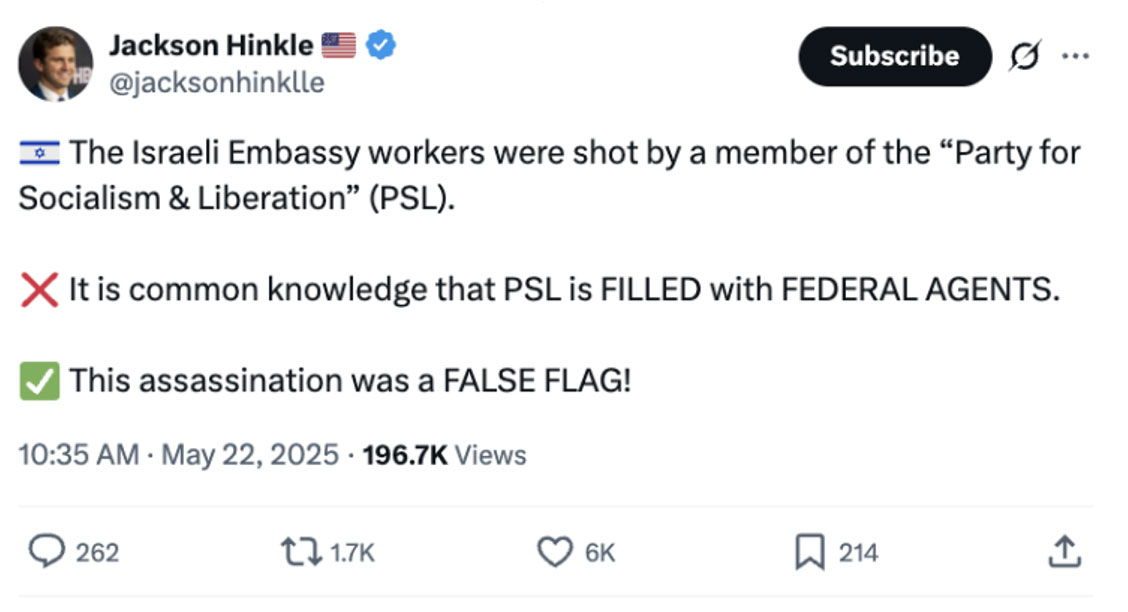Hostile foreign actors are increasingly using social media to drive a wedge into Donald Trump’s political coalition. Using open-source intelligence and analyses of online activity, we explore this phenomenon, which we call “fake MAGA,” in a recent report for the Network Contagion Research Institute (NCRI).
Our report defines fake MAGA influencers as those who use “Make America Great Again” or “America First” branding to target these audiences but are in fact linked to large-scale bot farms—as evidenced by the creation of massive numbers of such accounts at opportune moments on X. That is, our analysis reveals coordinated account-creation spikes (for instance, during Elon Musk’s Twitter acquisition), followed by synchronized amplification of identical narratives by those same accounts during a crisis.
Finally, a reason to check your email.
Sign up for our free newsletter today.
Typically, fake MAGA operations occur within 48 hours of a high-profile news event and use a consistent strategy. Accounts that appear to mimic MAGA sentiment and claim to put “America First” instead advance agendas aligned with hostile foreign states. For example, these networks have amplified Iranian state propaganda, claiming nuclear inspectors operate under Israeli control, and attacked Trump with accusations of pedophilia and ties to Jeffrey Epstein.
There is nothing wrong with contesting the political narratives that come out of the White House or mainstream media sources. Vigorous dissent and debate are crucial components of a healthy democracy. But that is not what is happening here.
The most striking recent example of this kind of coordinated social media campaign is the surge in “false flag” claims—allegations that major events are orchestrated by governments to further their agendas—following acts of domestic terrorism.
For example, after last month’s murder of two Israeli embassy workers in Washington, D.C., numerous social-media accounts claimed the incident was carried out by Israel itself to drum up sympathy. Prominent far-right influencers who repeated the line attracted hundreds of comments that were strikingly similar, including “emoji-wall spam” and identical quote-tweets—a telltale sign of bot activity.

The problem is broader; as we note in the report, “From May 22 to June 10, 2025, more than 650,000 English-language posts cited ‘false flag’ narratives related to high profile attacks, generating nearly four million interactions.”

Our research has identified a group of ostensibly conservative influencers, who, at pivotal moments of nearly every crisis, use false-flag claims to sow doubt about the origins of acts of domestic terrorism. While these influencers may not knowingly coordinate with bot networks, they benefit from them nonetheless.

Opinions like these go viral thanks in part to armies of bot accounts that amplify the content’s reach. We know this because forensic analysis of more than 1,000 accounts participating in the “false flag” discourse revealed that nearly a quarter of them were not authentic.
In short, inauthentic engagement is being deployed for information warfare. Bot networks link the geopolitical interests of hostile foreign states with a cluster of prominent, seemingly authentic domestic influencers. These fake MAGA influencers in turn ride bot-driven waves of algorithmic virality to collect more clicks. This generates enormous psychological disorientation among Americans—over half of whom report regularly getting their news from social media.
When the narratives pushed by operations like these go viral, they magnify U.S. domestic schisms, cast doubt on the authenticity of expertise, and erode American trust in domestic political institutions and public leaders.
Fake MAGA influencers are therefore doing more than just seeking attention or material gain. They are political actors facilitating political subversion—a carefully calibrated psyop intended to erode America from within. We should take them seriously.
Photo by Alex Grimm/Getty Images
City Journal is a publication of the Manhattan Institute for Policy Research (MI), a leading free-market think tank. Are you interested in supporting the magazine? As a 501(c)(3) nonprofit, donations in support of MI and City Journal are fully tax-deductible as provided by law (EIN #13-2912529).
Source link


















